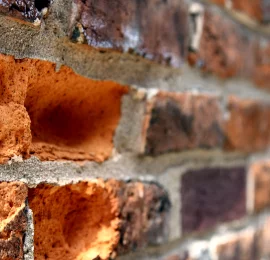Unlocking the Tricks of Sustainable Stonework Building Practices for Eco-Friendly Structures
Among the myriad approaches to environmentally friendly building, sustainable stonework building stands out as a time-tested and resilient method that holds a wide range of untapped potential. From the selection of materials to ingenious building and construction methods, the secrets to accomplishing sustainability within stonework building and construction are multifaceted and intriguing.
Advantages of Lasting Stonework Construction
Accepting sustainable masonry building practices not just reduces environmental impact yet likewise offers long-term financial advantages to builders and neighborhoods. By making use of materials like recycled bricks, obstructs, and rocks, building contractors can dramatically lower the carbon impact of their jobs while advertising source efficiency. Additionally, sustainable masonry construction methods, such as appropriate insulation and thermal mass buildings, can enhance power effectiveness within structures, leading to reduced functional costs gradually.
Furthermore, the toughness and strength of stonework structures add to long-term economic advantages. Structures built using sustainable masonry techniques usually require much less maintenance and repair service, translating to cost savings for building contractors and homeowner. The long life of masonry products also makes certain that structures remain stable and safe and secure, lowering the demand for regular remodellings or substitutes.
Eco-Friendly Stonework Products
Using green stonework materials is a pivotal step towards enhancing the sustainability of construction practices and decreasing ecological influence while making the most of long-term economic advantages. Sustainable stonework materials are sourced, produced, and used in a way that minimizes total environmental impact. Lasting concrete blocks include recycled aggregates and might feature better insulation residential properties, contributing to power effectiveness in structures.
Additionally, natural products like adobe, rammed earth, and straw bundles provide exceptional thermal mass residential properties, lowering the requirement for home heating and cooling energy. These materials are frequently in your area available, promoting regional economic climates and decreasing transportation-related carbon discharges. By choosing environment-friendly stonework products, building and construction jobs can considerably decrease their environmental impact and add to the development of healthier, extra lasting built atmospheres.
Energy-Efficient Masonry Strategies
Energy efficiency plays an essential duty in improving the sustainability of masonry building and construction techniques. By applying energy-efficient stonework strategies, contractors can considerably decrease the general power intake of a structure, causing reduced operational expenses and a smaller sized environmental footprint. One essential energy-efficient masonry strategy is the usage of thermal mass, which involves integrating thick materials like concrete or brick into the structure's framework to soak up and keep warm. This assists control indoor temperature levels, reducing the demand for mechanical home heating and cooling down systems.

Developments in Lasting Masonry
Recent advancements in lasting masonry techniques have brought around innovative methods that are reshaping the building sector. One such technology is the development of self-healing concrete, which uses microorganisms installed within the concrete to heal stone stamped concrete cracks autonomously. This breakthrough not only reduces upkeep expenses yet also enhances the toughness of stonework structures, adding to their sustainability.
Another notable innovation is the use of recycled aggregates in stonework building - masonry contractor. By including materials such as smashed ceramic waste or recycled glass into concrete blends, building contractors can decrease the environmental impact of building and construction projects while preserving structural stability. This technique not only draws away waste from land fills but additionally conserves natural resources, making it a crucial improvement in sustainable stonework construction
Additionally, the combination try here of electronic style devices, such as Structure Info Modeling (BIM), is revolutionizing the method masonry structures are intended and built. BIM enables more specific estimations, reduced material wastefulness, and boosted power efficiency, eventually causing more lasting building techniques. These developments jointly signify an encouraging future for lasting stonework construction in the age of green structures.
Future Trends in Stonework Sustainability
With the ingenious strides made in sustainable masonry techniques, the future trends in stonework sustainability are poised to more reinvent the building and construction industry. One of the key trends forming the future of stonework sustainability is the increased combination of innovation. Improvements such as Building Info Modeling (BIM) and virtual reality simulations are being utilized to enhance stonework construction procedures, resulting in lowered product waste and enhanced power effectiveness in buildings.
Additionally, the growth of unique lasting products is set to play a substantial function in improving the eco-friendliness of stonework construction. masonry contractor. Developments like self-healing concrete, recycled aggregates, and bio-based binders are obtaining visit this site right here traction for their ability to lessen environmental influence while keeping structural stability

Verdict
In conclusion, lasting stonework building practices provide many benefits for environmentally friendly buildings. masonry contractor. Technologies in lasting stonework are constantly being created to additionally improve the environmental efficiency of buildings.